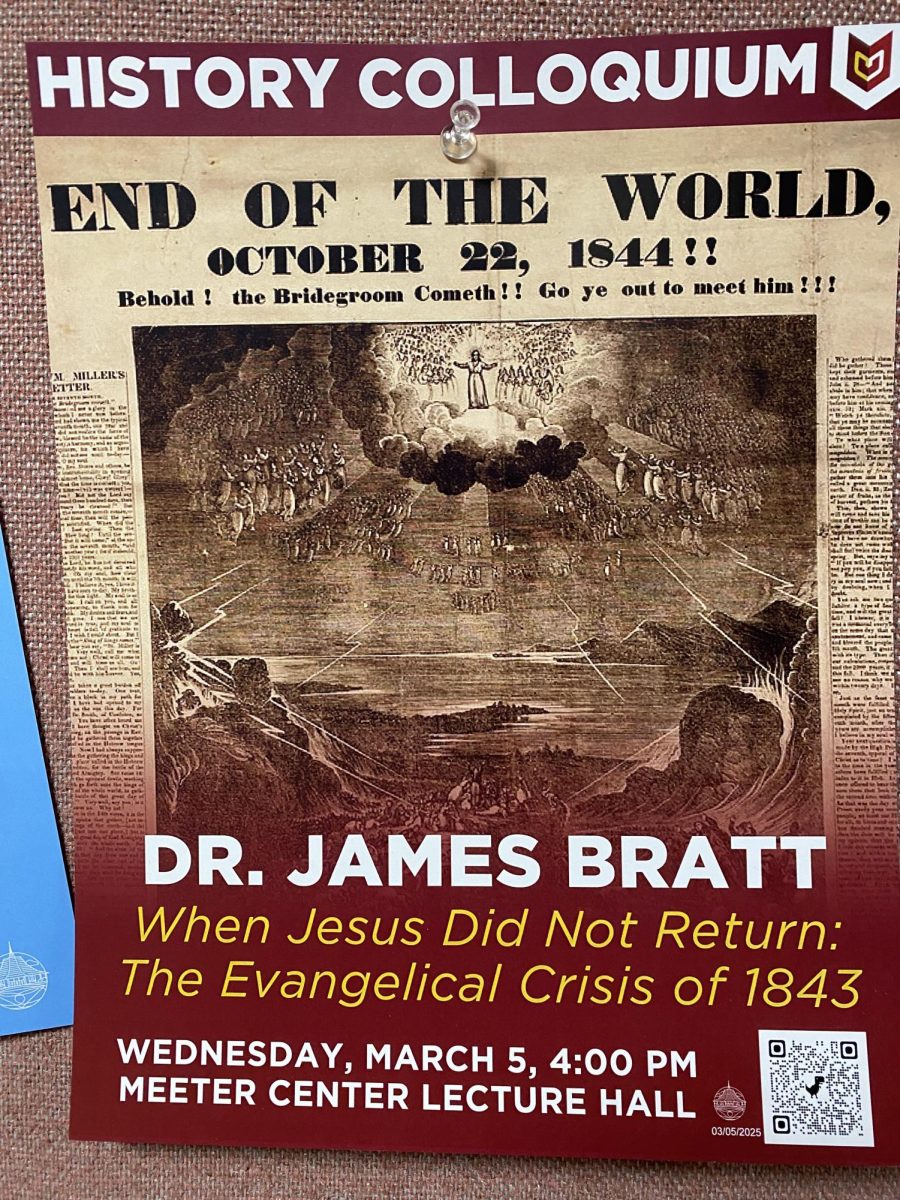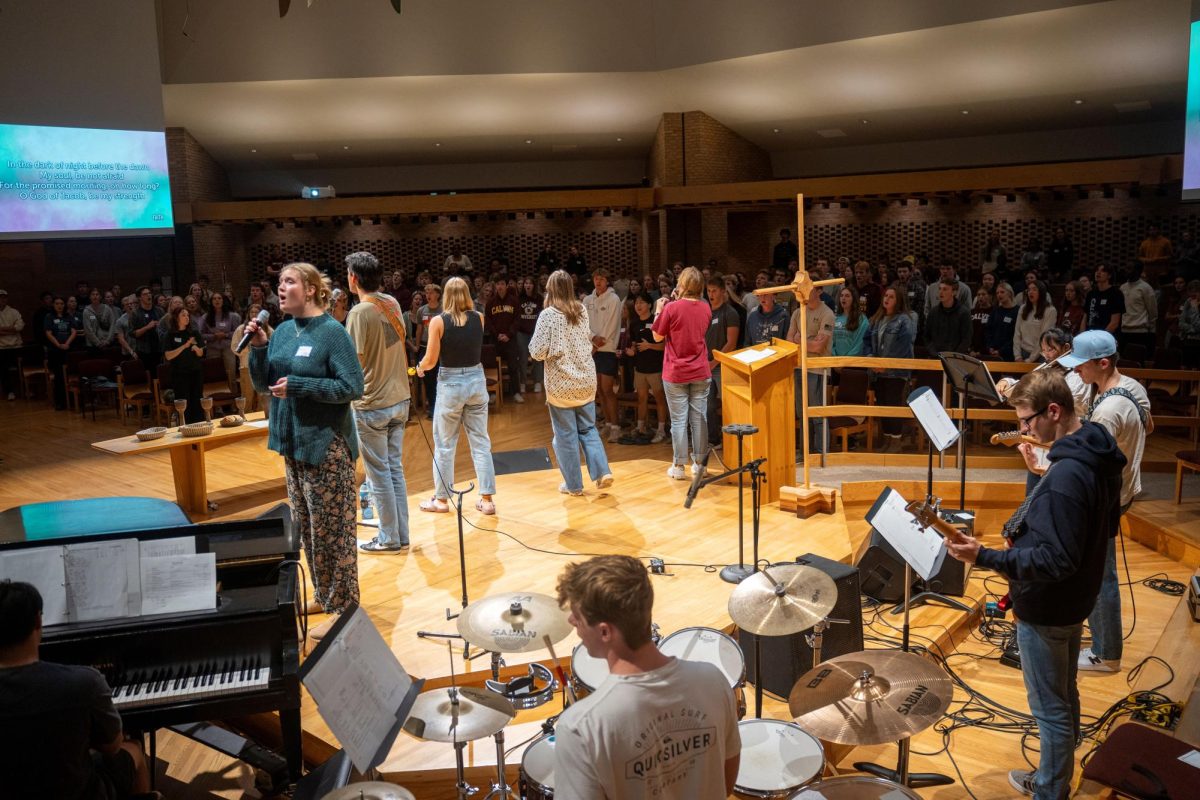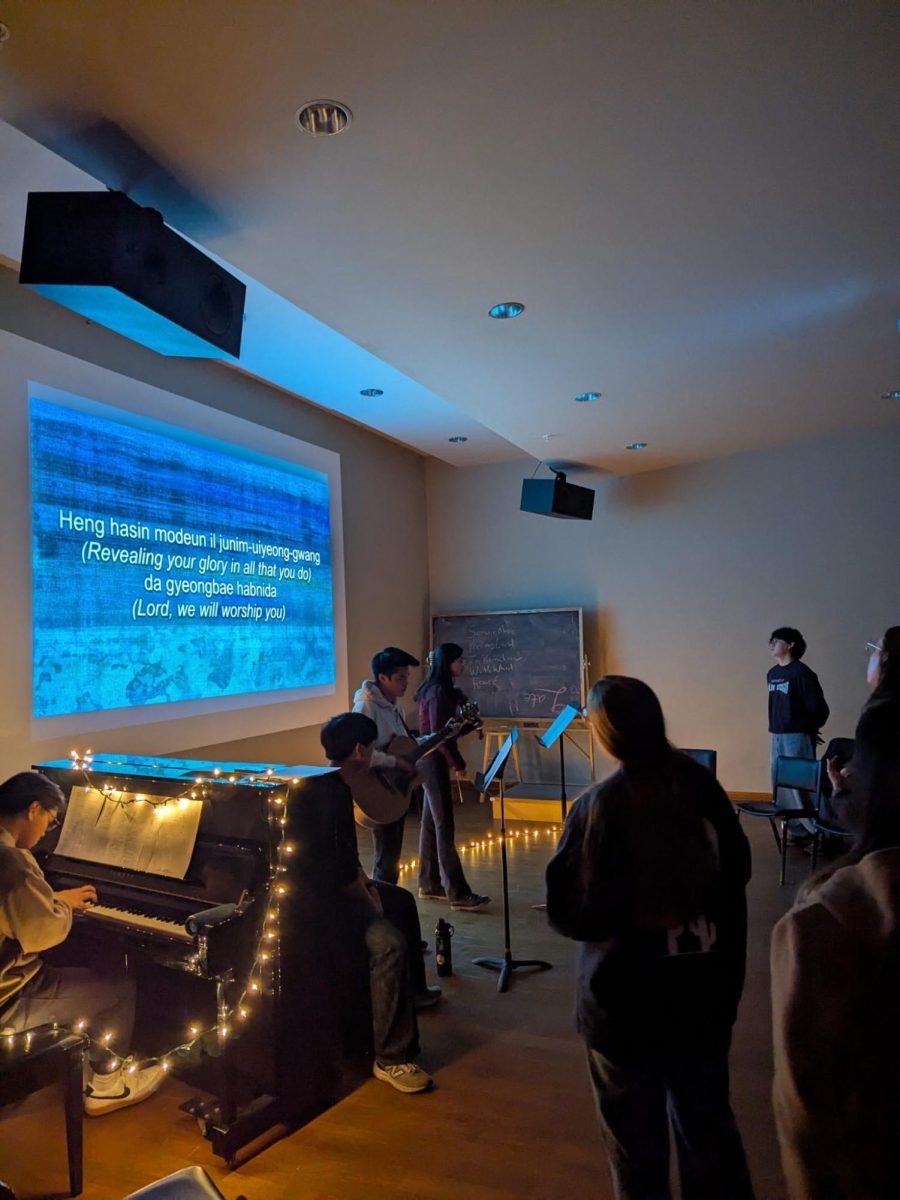Dr. John Inazu delivered the fifth annual Pruis Rule of Law Lecture last Friday in the Meeter Center Lecture Hall . His lecture was titled “The Church’s Freedom and the Church’s Witness.” This lecture was among other political science events this semester which explore the integration of politics and faith.
Inazu is an associate professor of law and political science at Washington College in St. Louis, Missouri. He is serving as a visiting faculty fellow at the Institute for Advanced Studies in Culture at the University of Virginia during the 2014-15 school year.
Inazu started off the lecture by stating the importance religious liberty has in our society.
“I believe that religious liberty and religious institutions are crucially important to our society, he said. “Many of our most important institutions, including hospitals, universities and social service organizations, would not be what they are today without the churches that founded and nurtured them.”
He went on to explain that he was “somewhat skeptical of [religious liberty’s] political or legal relevance in an increasingly secular society.”
While Inazu noted that Christians can argue the importance of the freedom of the church, he said he sees the constitutional question as being whether the differences of the church and other social organizations are sustainable under the law.
One of the complicating factors in religious liberty in America is that these laws go beyond protecting the church to protect other religions and even non-religious organizations.
“My own view,” Inazu continued, “is that favorable religious liberty legislation will be increasingly difficult to enact in the coming years. One reason for that difficulty is that the theoretical justification for religious liberty is itself under pressure.”
Inazu presented the problems that religious liberty has faced and will continue to face as the theoretical basis for religious liberty comes against more progressive social legislation. He believes that pluralism is the best option to try at this point in time. He argued that “the pluralist arguments… are entirely consistent with the witness of the church.”
“I’ve begun to refer to this idea in some of my writing as ‘confident pluralism.’ ’Confident pluralism’ takes both confidence and pluralism seriously,” Inazu said. “We can embrace pluralism because we are confident in our convictions and our beliefs and in the groups and institutions that sustain them.”
Inazu ended his lecture by reaffirming the object of the church’s confidence.
“The proper object of our confidence is always the life, death and resurrection of Jesus Christ. In that confidence we can engage winsomely in a pluralistic world. That confidence which proclaims the witness of the church moves forward regardless of the legal challenges that await.”
There are two final lectures in the political science department series. The first one is titled “Walker Percy and the Honor-Bound South,” which will be held on Nov 18, in room 120 of the Devos Center. The second is titled “Incarnational Apologetics: Dostoevsky’s Underground Man and the Limits of Reason,” and will be held at DeVos Center 16.







